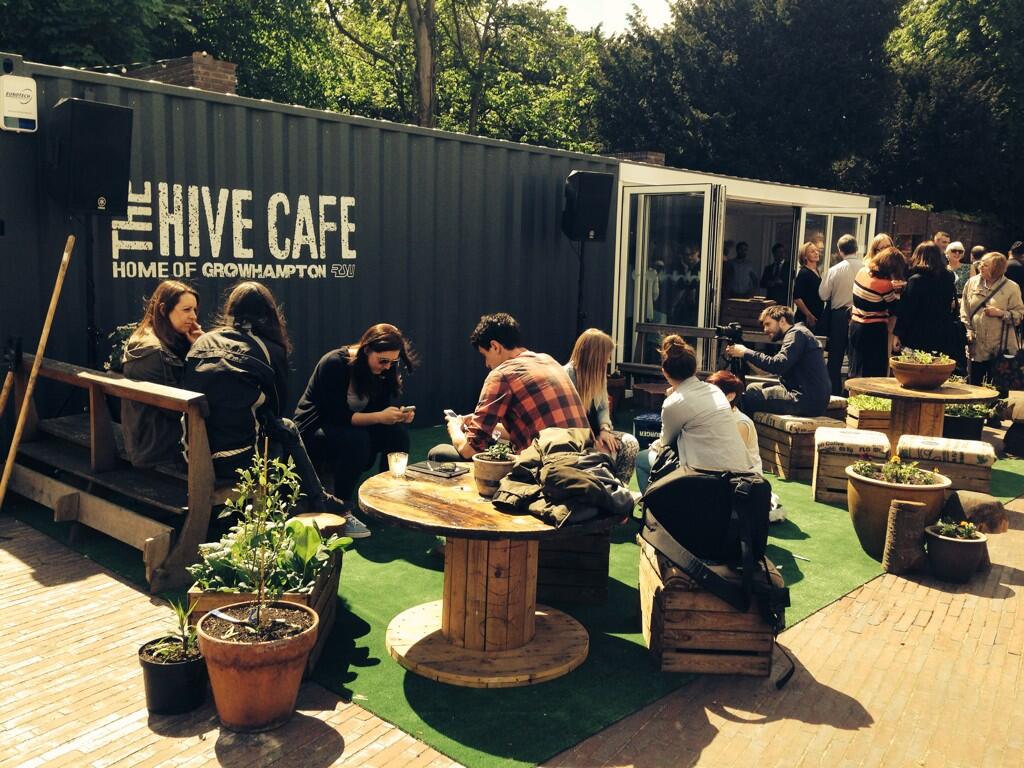Thanks to a growing awareness of sustainability issues, students around the country are swapping evenings on cheap beer for afternoons spent growing their own fruit and veg. Natalie Leal looks at the rise of edible campus initiatives
As students head off to university this autumn many will be able to dig up some campus-grown potatoes or pick an apple on the way to their halls of residence thanks to a recent rise in edible campus initiatives across the UK.
More than 20 such growing projects now exist around the country, see students growing fruit and vegetables on site with some keeping chickens or beehives. Enterprising undergraduates at universities from Exeter to Newcastle have set up the student equivalent of farmers’ markets and veg box schemes with some even producing their own beer, honey or jam.
This may not sound like typical student behaviour, which stereotypically involves cheap cider and beans on toast, but the organisers of the projects stress that there is, in fact, a large and growing number of engaged young people desperate to do something practical. They want to make a positive difference – both in their immediate environment and to the world – and they are doing this through food.
One of the first institutions in the UK to start looking into the idea was the University of Brighton. Inspired by the first ever edible campus at McGill University in Canada, architect and research initiatives leader Andre Viljoen and his colleague Katrin Bohn wanted to create something similar. But, he says, 10 years ago people were generally nonplussed by the idea.
“Growing vegetables and keeping chickens may not sound like typical student behaviour, which stereotypically involves cheap cider and beans on toast.”
“Round about 2005 there was very little interest in these things” he says. “When you mentioned anything about urban agriculture it was assumed you meant allotments and that it was a kind of nice, romantic idea.”
Over the last decade Viljoen says interest has grown exponentially. In 2008 the University of Brighton created one of the first edible campuses in the UK which is still running today. “There’s a lot of momentum and it’s built up significantly in the last 10 years – it’s coming from many different fronts” he says.
The National Union of Students (NUS) has been trying to harness this momentum after surveys revealed that more than 80% of students wanted their institutions to be more sustainable. In response to the growing demand, grants from the Higher Education Funding Council for England (HEFCE) were provided to 25 student unions to develop sustainability projects with many opting for edible campuses.
A greater awareness of food issues seems to be one of the main driving forces behind this trend.
Viljoen says both positive and negative media stories have generated interest: “People like Jamie Oliver and Monty Don, who did a television programme all about urban agriculture in Cuba, have had quite a lot of impact.”
In recent years the horse meat scandal, news of growing food insecurity and reliance on food banks have also led people to question where their food comes from. “That’s where you can see how negative news has a positive outcome because people respond to it,” says Viljoen.
One students’ union to receive funding for a sustainable food project was the University of Roehampton, which now boasts a thriving edible campus called Growhampton. Here, students grow their own vegetables, look after a flock of chickens, hold a weekly market and have an up-cycled cafe made out of old shipping containers. This summer they successfully crowd-funded £20,000 to expand.
Like what you’re reading? Get your Positive News subscription here
Teresa Sheppard, Growhampton development manager, agrees that student interest is at an all-time high: “The project was so well received it now feels like something that was missing that students and staff were really ready for,” she says.
Sheppard says campaigns for healthy eating in schools over the last decade may be part of the reason why. “When those students leave school they’re naturally more interested in these projects when they come to university,” she says.
In the longer term Sheppard can see the University of Roehampton changing its catering policy in response to the growing desire for sustainable food.
“We do feel this is very much the beginning,” she says. “Eventually it would be great if students had the knowledge and skills and felt empowered and passionate to influence general catering here.”

The Growhampton cafe at the University of Roehampton © Growhampton
One of the most recent universities to get involved is the University of Edinburgh. Due to its location in Scotland they weren’t eligible for funding from the HEFCE but David Somervell, sustainability adviser at the university, says this didn’t matter. “They don’t want any funding. They just want to go away and do it themselves. This is very grass roots.”
The project has already influenced the general catering policy of the university with the administration now looking into sourcing local food and creating seasonal menus.
Piers Telemacque, NUS vice president for society and citizenship, is excited about where all this could lead: “From the first few harvests at the beginning of the project, we’ve seen veg box schemes and co-ops emerge, as well as full-blown businesses and campus cafes. We can’t wait to see how this continues to develop in the years to come – putting students at the heart of the UK food revolution.”
